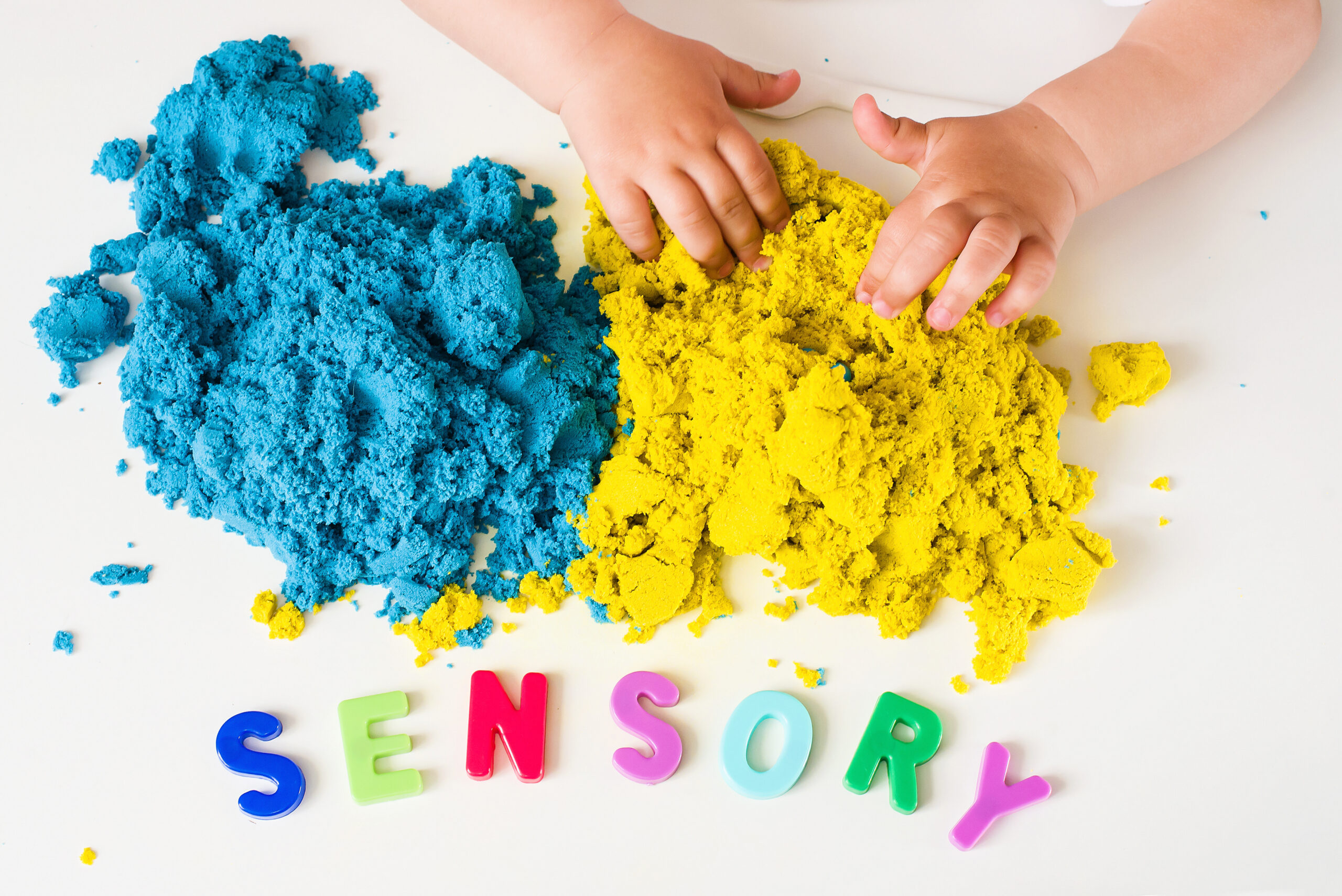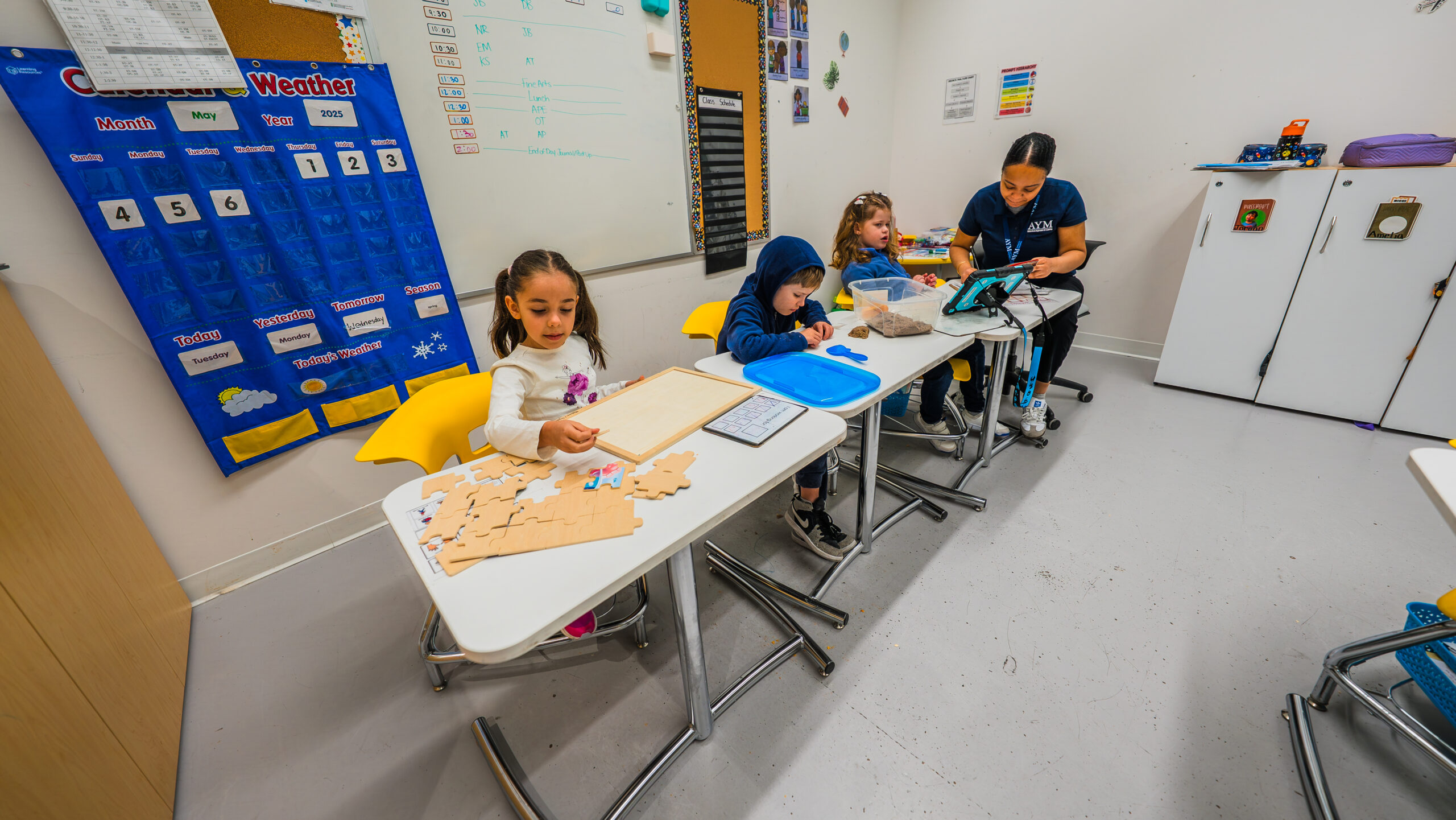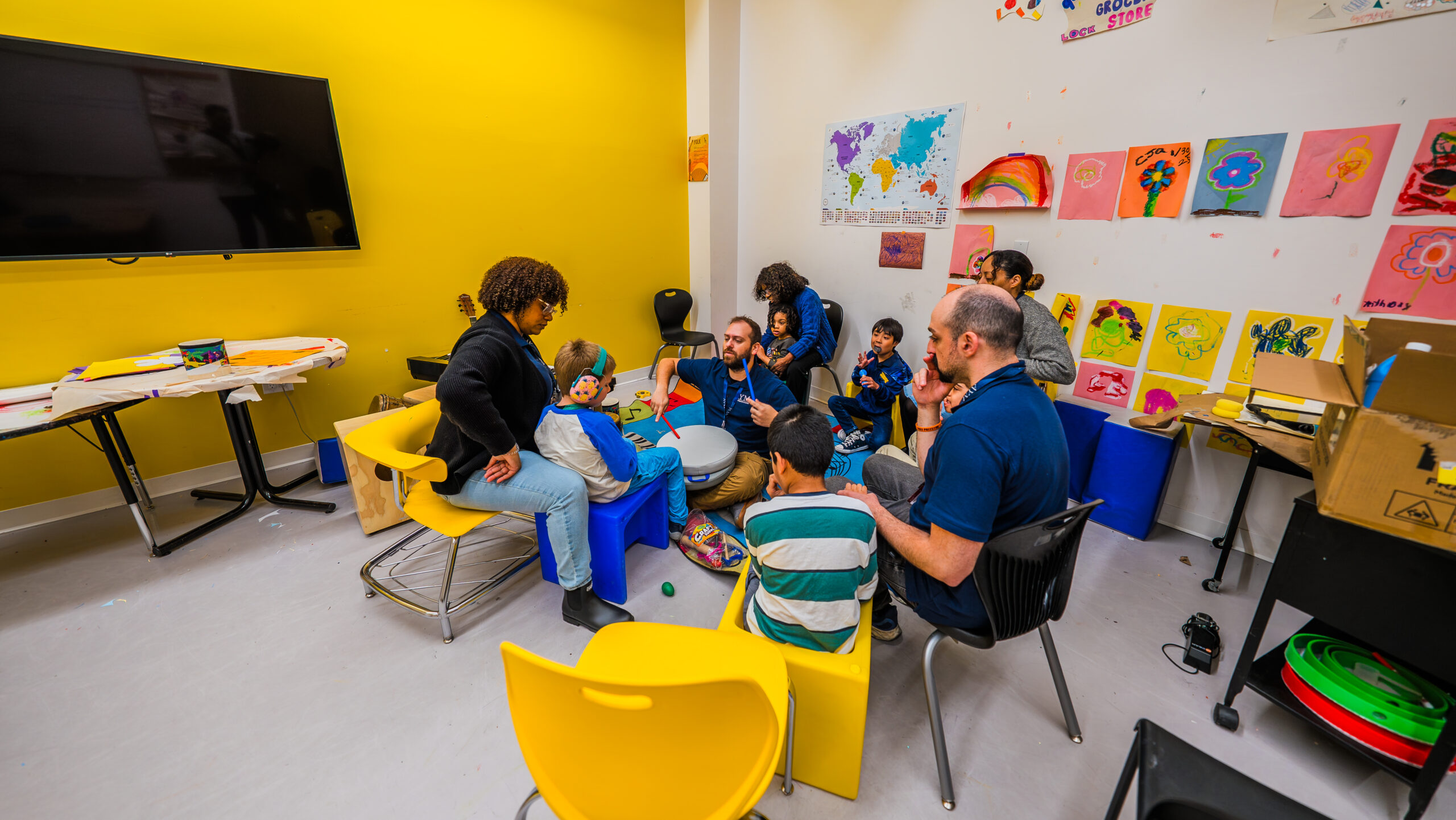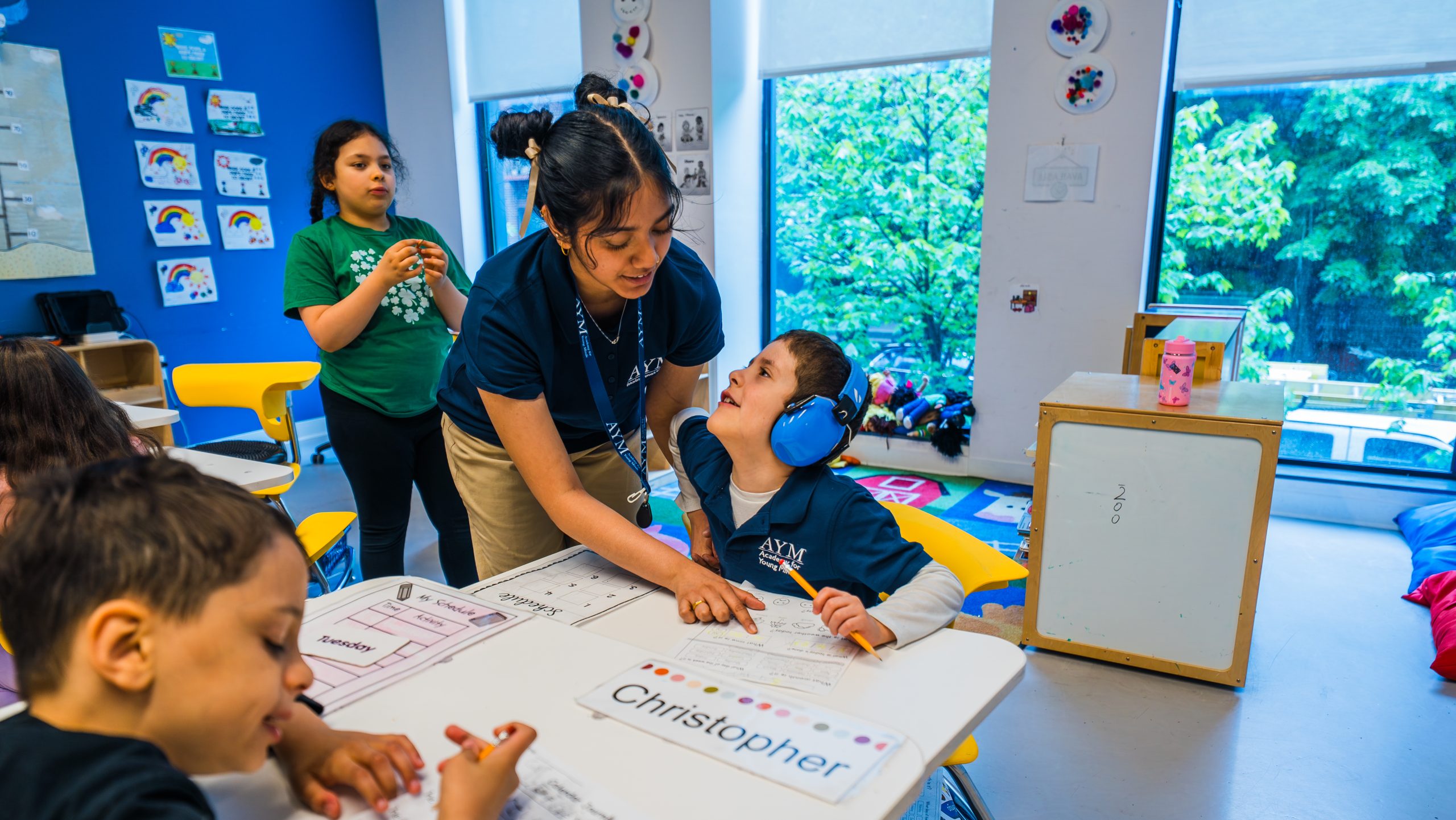What Academy Of Young Minds Does to Prioritize Sensory Integration
For parents navigating life with a child with autism, addressing sensory integration is critical. Living with an often dysregulated child can be incredibly challenging, as sensory processing difficulties can significantly impact each and every day.
The Academy of Young Minds (AYM) recognizes this, and we are dedicated to meeting these needs through tailored support and innovative approaches. Our commitment to sensory integration ensures each child receives the necessary interventions, providing a pathway to more regulated and engaged learning experiences.
This focus on sensory integration is a cornerstone of our approach, as we offer hope and practical solutions to families facing these challenges.
What Is Sensory Integration?
Sensory integration is a process that involves the organization and interpretation of sensory inputs for effective use in daily life. It’s the way our brain takes information from our senses and organizes it so we have an appropriate response.
Challenges with sensory processing, a core component of autism spectrum disorder, can impact a child’s learning and social interactions significantly. Some children are extremely sensitive to sensory input (sensory avoidant), while others are hyposensitive (sensory seeking). Some are both hypo- and hypersensitive, depending on the stimuli. Children will look for ways to have their sensory needs met, which can result in an inability to focus, struggling to engage with the lesson, and sometimes challenging and even harmful behaviors.
Difficulties in sensory integration can disrupt a child’s ability to process within their environment, making tailored strategies and supports essential for their development and well-being.
What is a Sensory Diet?
One way to help children with sensory processing struggles is to incorporate a “sensory diet” into their daily routine. A sensory diet is a tailored set of activities designed specifically to provide the sensory input a child requires. This personalized approach aids in maintaining focus and organization, significantly enhancing a child’s capacity for engagement and learning.
A sensory diet is typically developed by an occupational therapist and the child’s parents to create a plan that best works for the child. It includes ways to receive the sensory input the child needs before school, during school, after school, bedtime, and any other time it might be needed. Examples of input that might be included on a sensory diet are:
- Time on a hammock swing
- Jumping on a trampoline
- Animal walks (i.e. bear walk, crab walk)
- Playing with play-doh or putty
- Jumping into a crash pad
- Crunchy or chewy snacks
- Calm music
- And so many more!
What AYM Offers Its Students
At AYM, the sensory integration program is tailored to each student by collaborating with occupational therapists. The student has access to a completely multi-sensory environment wherever they go, whether it be the classroom, the state-of-the-art sensory gym, or outdoors. Each location has been meticulously designed to best meet the various sensory needs of our student population.
Each student’s personal sensory diet plan will be followed throughout the school day, and the rest of the team will be instructed on how to help implement it. This continued and consistent support is fundamental for their academic and social development.
AYM is committed to providing a comprehensive educational approach that respects each student’s unique needs. It is a crucial piece of our larger mission to foster an inclusive, supportive educational space. If you’re seeking a nurturing environment that values personalized learning experiences, explore what AYM has to offer.
Resources:
https://aymschool.org/our-school/#sensory-gym
https://aymschool.org/our-program/#sensory-integration
https://www.autismparentingmagazine.com/sensory-diet-for-autism/



